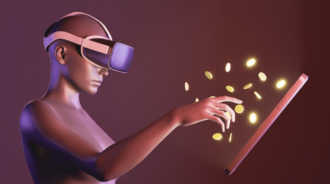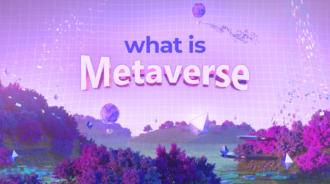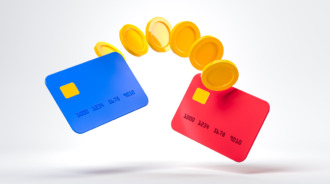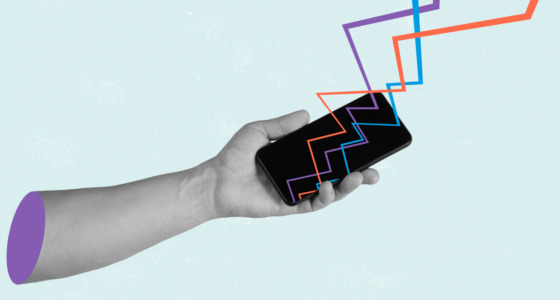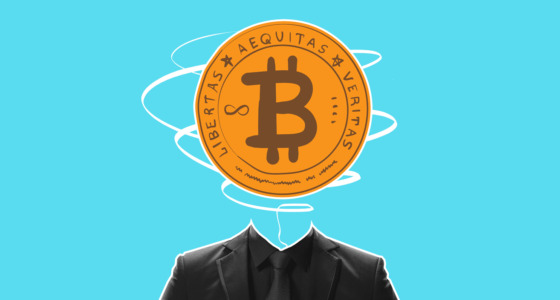

Today, every industry is trying to make the most of technology. When it comes to a secure and efficient database, blockchain technology comes to mind. Let’s find out what blockchain technology is and what its advantages are.
Blockchain technology definition
According to Wikipedia, blockchain technology is a continuous sequential chain of blocks containing information built according to certain rules. Basically, it is an innovative type of digital ledger. Blockchain technology helps securely record, distribute and manage data, making it difficult to change or delete previously stored information.
Blockchain is the technology behind the scenes when it comes to cryptocurrencies. It guarantees the accuracy and security of data recording and does not need to be controlled by a third party. Blockchain stores information electronically in a digital format and is essential in cryptocurrencies such as Bitcoin to provide a decentralized record of transactions.
If you look into the history of blockchain, the term first appeared as the name of a fully replicated distributed database implemented in the Bitcoin system.
Who invented blockchain?
In 1991, physicist Scott Stornetta and mathematician Stuart Haber invented the blockchain. They explained blockchain technology as software protocols that allow multiple parties to operate based on shared assumptions and data without trusting each other.
How many blockchains are there?
Today, there are several hundred non-cryptocurrency blockchains and over 10,000 blockchain-based cryptocurrencies. Its popularity is high.
How does Blockchain work?
Simply put, a blockchain is digital record keeping that cryptocurrencies use for their operations. Bitcoin and Ethereum are not only popular cryptocurrencies but also the most famous examples of blockchains.
How does crypto work? It’s simple, based on blockchain technology.
Blockchain meaning
Blockchain differs from a regular database in the way information is stored. The data is stored in blocks, which are then linked using cryptography.
So, a block in blockchain technology is a linked list of information. Each block contains its hash sum and the hash sum of the previous block. If the information in the block changes, then the hash sum also changes.
Transaction process
Whenever someone requests a transaction, all the existing nodes in the Blockchain validate it. Once verified, the transaction becomes a part of the current chain as a new block.
The basic process of the transaction using blockchain looks like this:
- A new transaction is entered.
- It is then transmitted to a network of peer-to-peer computers scattered around the world.
- A network of computers solves an equation to validate a transaction.
- The transaction is complete.
- These blocks are chained together, creating a long history of all transactions.
- After confirming the legitimacy of transactions, they are combined into a block.
The validation process makes Blockchain secure, as the legitimacy of all new transactions is verified. Furthermore, adding a new block in the chain is permanent and unalterable.
Attributes of cryptocurrency
Cryptocurrency is a virtual medium of exchange with no intrinsic value or physical form. Since it does not physically exist, its supply is not regulated by any global central bank.
One of the primary uses of blockchain technology is the management of cryptocurrency. Its encryption methods help control the creation and verification of monetary units for cryptocurrencies such as Bitcoin.
Blockchains are mainly used to store the history of cryptocurrency transactions. But they can also store legal contracts or the company’s product inventory.
The attributes of a cryptocurrency are determined by a majority of the members of its decentralized network, not by a central bank.
Blockchain decentralization
What is the basic concept of blockchain? It lies in the fact that it is an electronic record of data that does not belong to an individual or organization.
Since the technology is digital, unlike a physical database, not all blockchain nodes exist at one location, resulting in data decentralization. Decentralization eliminates room for bias, ensuring an even control distribution amongst all nodes.

Transparency
Despite data decentralization, blockchain transactions are transparent since each new transaction requires verification by the majority of blocks and is easily viewable in real-time. The use of encryption is routine for most blockchain records, making anonymity possible without sacrificing transparency.
The records stored on the blockchain are encrypted. Only the owner of the recording can decrypt it to reveal their identity. Therefore, blockchain users can remain anonymous but remain transparent.
Is Blockchain secure?
We have now established that blockchain is an efficient database for transaction processing. However, since it’s digital, it makes one question its security. Both decentralization and transparency of blockchain make it possible.
Two essential elements make a blockchain secure. Firstly, the validation of the new block by all existing blocks, and secondly, the chronological order of all additions.
New blocks are always saved linearly and in chronological order. Therefore, it is tough to go back and change its contents.
Each block contains its hash, the hash of the previous block, and a timestamp. Hash codes are created by a mathematical function that turns digital information into a string of numbers and letters. If you edit it, the hash code will also change.
It turns out that these two crucial elements make the blockchain a secure medium for transactions.
How does blockchain support data privacy?
The blockchain lets users control their data with private and public keys. Owners of such data control when and how to share it with a third party.
Bitcoin vs. Blockchain
Bitcoin and Blockchain are inextricably linked. Although the blockchain was invented in 1991 by Stuart Haber and W. Scott Stornetta, it only got its real incarnation in 2009 with the launch of Bitcoin (it uses the blockchain to transparently record a ledger of payments).
Considering blockchain gained success with its association with bitcoin, currency transactions are not its only function. Blockchain technology’s unique properties make it suitable for many other uses, including supply chain, healthcare, voting, and record keeping.
How are Blockchains used?
Since blockchain is an electronic database, the technology is viable for all things requiring data storage and transfer.
Banking and Finance
Bitcoin’s success proves that monetary transactions are blockchain’s specialty; therefore, the one industry that can easily incorporate blockchain into their business is the financial industry. Blockchain technology is also actively used in banking. The use of blockchain significantly reduces the time and cost of transactions for banking and financial institutions and increases the security and transparency of said transactions.
Financial institutions do not operate around the clock. Blockchain is working 24 hours a day.
Healthcare
Another possible use for a digital database such as blockchain is in healthcare. Encryption will ensure the confidentiality and security of medical records. The digital repository will also make them available for viewing by designated individuals when required.
Smart Contracts
The digital nature of blockchain automates contracts and agreements, also known as smart contracts. They are agreements set up in the form of computer codes. Contract automation enforces their terms — for example, the automatic release of bitcoin units after receiving the value of said units.
Voting
The modern voting system can also use blockchain, significantly reducing the risk of electoral fraud. A unique “hash” for each citizen will help reduce vote-rigging. The speed and accuracy that comes automatically with decentralized blockchain technology will help reduce the need for human resources to manage and count votes and the associated costs associated with it.
What is the difference between private and public blockchain?
A public blockchain is a database that anyone can join. However, such blockchains are not private and must be protected by cryptography and a consensus system.
A private blockchain requires each node to be approved before joining. Since nodes are considered trusted, the security levels are not as reliable.
How does blockchain technology help organizations when sharing data?
Since the blockchain is a database system, it can be safely used in the work of organizations. With blockchain, organizations can share access to the same data in real-time. At the same time, the risks associated with security and confidentiality are extremely low.
Conclusion
So, we have studied blockchain technology, its advantages, and the possibilities of working in various areas of life. Blockchain is an accurate, secure, and efficient way to store and transfer data. Decentralization helps protect transactions from fraudsters and control from any government. That is why blockchain is a popular technology all over the world.
Comprehending the essence of blockchain leads to understanding how crypto works (such as bitcoin). It also allows you to see a wide range of applications of this technology in various areas: banking, healthcare, etc. But like any other technology, blockchain is valuable and efficient, but it warrants a complete understanding of the technology before its use.
